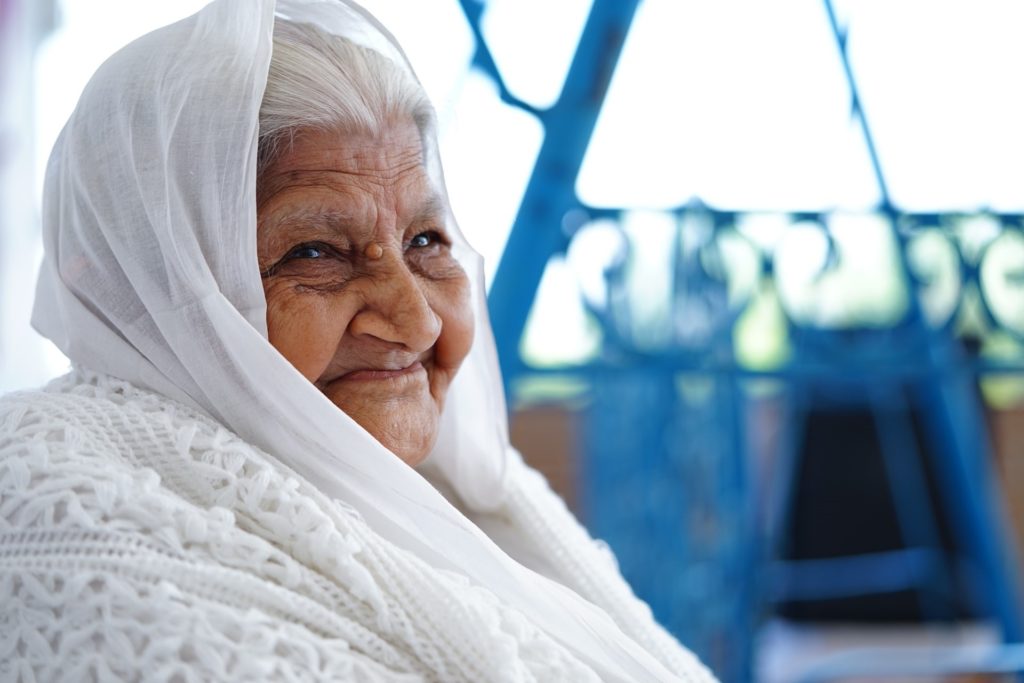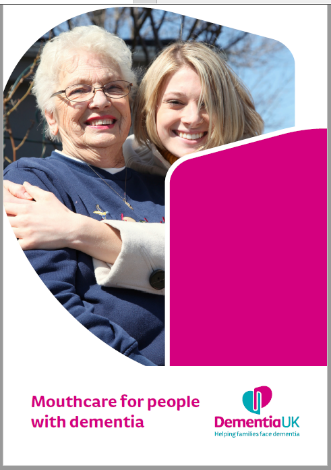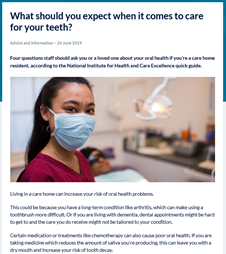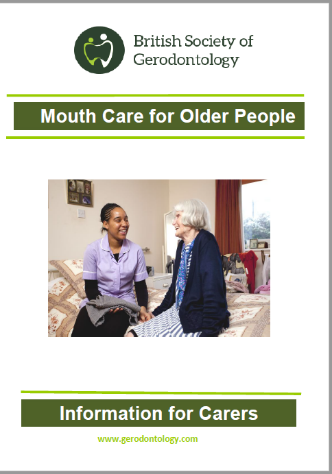Seniors (older people) with good oral health can eat and drink properly and actively take part in life. This means that they can often stay independent for longer and can recover from episodes of frailty more quickly.
Poor oral health can cause pain and discomfort at any age. It can negatively impact on a person’s quality of life by affecting their behaviour and self-confidence as well as their ability to smile, communicate, eat and swallow.
Some prescription medicine can even cause mouth problems, especially when taken in combination. For example, some pain relief medications, Parkinson’s Disease medication and Epilepsy medication can cause dry mouth and affect the ability to swallow – which in its worst case scenario, can lead to malnourishment.
Care home employees and home carers that look after elderly people, will be trained in managing good oral health for seniors.
Please contact the Lancashire Dental Helpline on 0300 1234 010 if you need emergency dental care but ideally ring your local dental practice first.

Oral Health For Seniors Resources
The following links and resources provide vital information on oral health for seniors in Blackburn and beyond. If you, your friend, family member or someone you know needs help with their oral health, you can head to…
1. Dementia UK:
Information leaflet on ‘Mouthcare for people with dementia’ includes information on:
- Sugar and oral health
- Caring for teeth and gums
- Wearing dentures
- Encouraging oral care if someone is reluctant
- Advice to find a dentist

View the guide here:
https://www.dementiauk.org/wp-content/uploads/2019/07/Mouthcare-new-WEB.pdf
2. Health Watch
‘What should you expect when it comes to care for your teeth?’
Four questions staff should ask you or a loved one about your oral health if you’re a care home resident, according to the National Institute for Health and Care Excellence quick guide.

View the guide here
3. British Society of Gerodontology

‘Mouthcare for Older People’ – Easy read information on oral health for seniors.
View the guide here:
For more information on aging healthily, check out the range of help, advice and support from Be Well BwD designed specifically for elderly adults.
